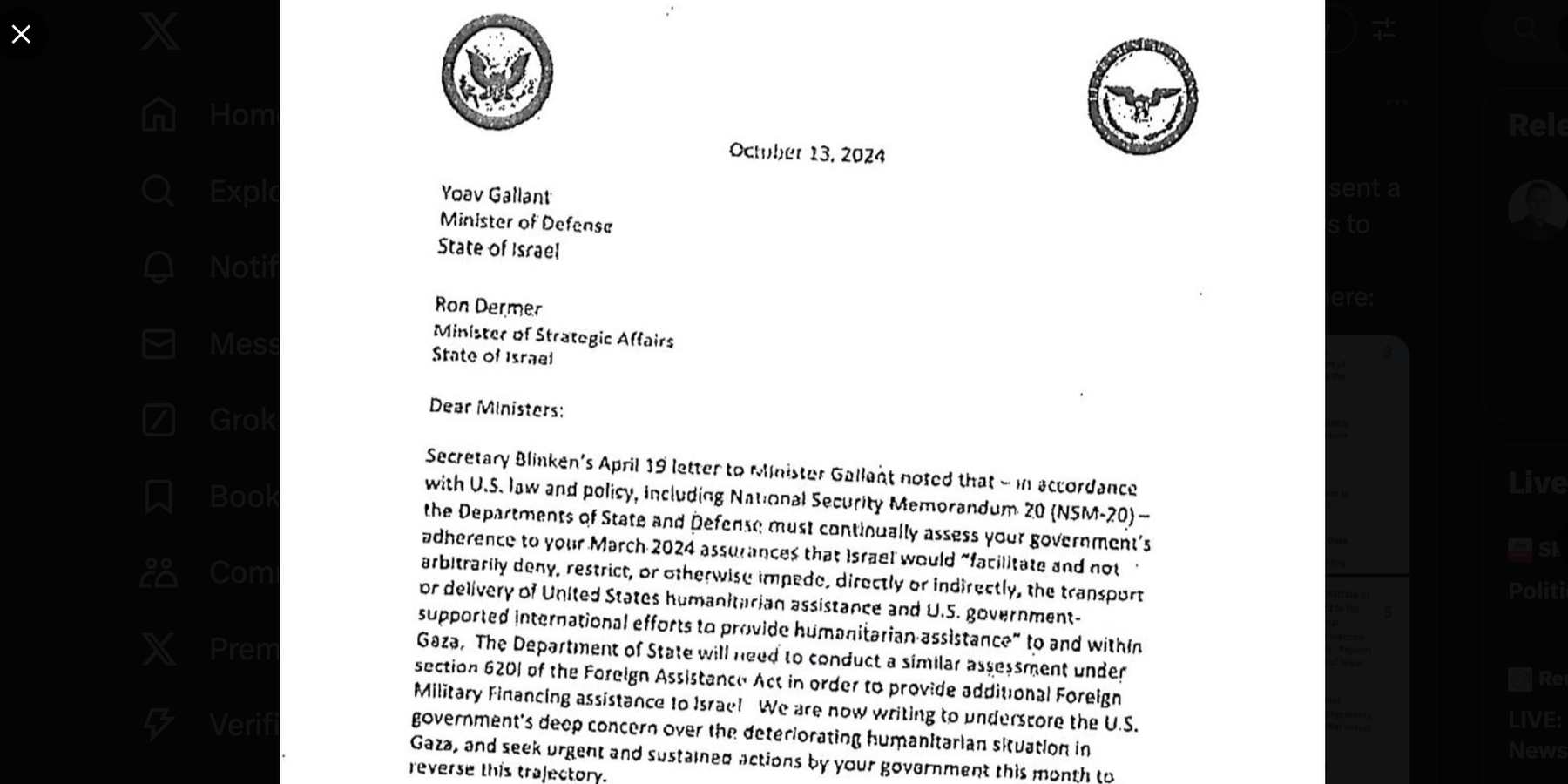The Biden administration says it is giving Israel 30 days to address concerns related to the humanitarian crisis in Gaza.
In a letter to two senior Israeli officials dated Oct. 13, Secretary of State Antony Blinken and Secretary of Defense Lloyd Austin said, “We are now writing to underscore the U.S. government’s deep concern over the deteriorating humanitarian situation in Gaza, and seek urgent and sustained actions by your government this month to reverse this trajectory.”
But critics are panning the letter, calling it a political gambit that’s too little and too late.
“I don’t know whether I'm terribly naive, I still have the capacity to be shocked, but the degree of cynicism required to set a 30 day limit … which coincidentally, gets you past the election date,” said Daniel Levy, president of the U.S./Middle East Project. Levy spoke about the letter Tuesday during a panel discussion on Israel’s war in Gaza hosted by the Quincy Institute.
The letter warns that a “failure to demonstrate a sustained commitment to implementing and maintaining these measures may have implications (arms embargo) for U.S. policy under NSM-20 and relevant U.S. law.” The problem with this is that “the Biden administration hasn’t done this (ultimatums) throughout” the last year when it could have, according to Levy.
Others wondered, given atrocities are playing out in real time, whether the Biden administration would act on its ultimatum.
“The U.S. giving Israel 30 days to allow humanitarian aid into Gaza or face cuts in weapon shipments is the most dishonest and morally bankrupt announcement I've seen for a long time,” said former UK diplomat Ian Proud on X. “Surely U.S. voters aren't so stupid they won't spot a big can of worms kicked down the street until after the elections?”
Blinken and Austin say that a minimum of 350 aid trucks per day need to enter Gaza through the four major crossings, as well as a fifth crossing that must be opened. Additionally, they want to ensure that Israel is not preventing essential items from entering Gaza by listing them as “dual use.”
They also insist “that there will be no Israeli government policy of forced evacuation of civilians from northern to southern Gaza.”
Dr. Annelle Sheline, Middle East fellow at the Quincy Institute, said that the letter appears to be a “clear acknowledgement” that the Biden administration knows that Israel is flouting laws governing U.S. military assistance.- State Dept: No evidence Israel violating laws with US weapons ›
- American doctors who worked in Gaza: No more bombs to Israel ›
- Israel using US election to take free hand against Gaza, Lebanon | Responsible Statecraft ›
















